Collection
Progress towards the Sustainable Development Goals
- Submission status
- Open
The year 2023 marks the mid-point of the 15-year period envisaged to achieve the Sustainable Development Goals, targets for global development adopted in September 2015 by all United Nations Member States. To help track where we are on this journey, and to amplify success stories, in this Collection we present studies that assess progress or that showcase interventions that have made a difference. We include articles that focus on at least one of the Sustainable Development Goals, at the local, regional or global scale, and we are pleased to invite submissions of studies framed in a similar way. With a growing overview of where we stand and which measures make a difference, we can generate momentum on a sustainable pathway towards improved human lives and a healthier planet.
Filter by section
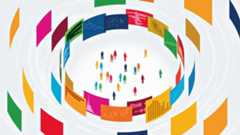

The future of the future foods: understandings from the past towards SDG-2
- Mehvish Habib
- Sakshi Singh
- Khalid Bashir

Carbon footprint and energy payback time of a micro wind turbine for urban decarbonization planning
- A. R. Pfadt-Trilling
- M.-O. P. Fortier

A food safety targeted sampling decision-making method based on association rule mining and GNNs
- Jiabin Yu
- Xinyue Ma
- Zhiyao Zhao

The overlooked role of exergames in cognitive-motor neurorehabilitation: a systematic review
- Maria Grazia Maggio
- Francesca Baglio
- Rocco Salvatore Calabrò


Human-wildlife ecological interactions shapeEscherichia coli population and resistome in two sloth species from Costa Rica
- Cristina Calvo-Fernandez
- Marta M. Dolcet-Negre
- Bruno Gonzalez-Zorn

Evaluating agricultural efficiency and sustainable development in China
- Muren
- Xiaokun Sun
- Li Cao

The effect of fermentation times of Semen Sojae Praeparatum on active ingredients and pharmacological activity
- Liqiang Sui
- Dongying Cao
- Hua Li

Design and development of a novel polymer coating system with exceptional creep resistance
- Nader Ameli
- Jaya Verma
- Saurav Goel

Synergy between AMF and accompanying microbiome enriched with PGPB enhances root development and microbiome dynamics
- Cristina Rotoni
- Marcio F. A. Leite
- Eiko E. Kuramae

New approaches and established models for scaling up sex- and gender-sensitive medicine teaching
- Laura Wortmann
- Sabine Oertelt-Prigione

Agrivoltaics as a climate-smart and resilient solution for midday depression in photosynthesis in dryland regions
- Greg A. Barron-Gafford
- Patrick Murphy
- Jordan E. Macknick

Next-gen novel nanocage-based multivalent vaccine candidate to tackle the rising menace of Mpox
- Rahul Ahuja
- Preeti Vishwakarma
- Sweety Samal

Investigation the microbial community and quality of Suanjiang tofu with the addition of wheat flour
- Shan Yu
- Jiangli Wu
- Xuefeng Zeng

Improving stability of frying oils and food quality with addition of dried olive mill wastewater
- Rokaya H. Jeba
- Hanaa M. Hemada
- Mohamed E. Mansour

Global socioeconomic inequalities in vaccination coverage, supply, and confidence
- Qiang Wang
- Kathy Leung
- Leesa Lin

Big data analytics in food industry: a state-of-the-art literature review
- Aftab Siddique
- Ashish Gupta
- Amit Morey
Common misconceptions of ‘other effective area-based conservation measures’ (OECMs) and implications for global conservation targets
The commitment to protect 30% of the Earth’s terrestrial, inland water, coastal and marine areas by 2030 under the Kunming-Montreal Global Biodiversity Framework has seen growing attention paid to ‘other effective area-based conservation measures’ (OECMs) to help achieve this target. However, there are a number of misconceptions of OECMs that commonly arise. We explore these misconceptions to aid in ensuring that OECMs are employed to meet their full potential.
- James A. Fitzsimons
- Carolina Hazin
- Joanna L. Smith

Advanced machine learning for regional potato yield prediction: analysis of essential drivers
- Dania Tamayo-Vera
- Morteza Mesbah
- Xiuquan Wang

Breaking biases and building momentum for transforming agricultural research for development practices: recommendations and research opportunities
- Erin McGuire
- Hanna Ewell
- Michel Kabirigi

It is time to reevaluate the lard in glucose homeostasis and diabetes pathogenesis
Most modern dietary guidelines recommend limiting lard and animal fats due to their potential link to metabolic diseases. Nevertheless, emerging evidence suggests that lard may not significantly contribute to diabetes and that moderate lard intake could even benefit lipid metabolism. This commentary suggests a reevaluation of lard’s classification as a “bad actor” in the context of diabetes, urging colleagues to give greater consideration to and empirically validate this intriguing hypothesis.
- Fangrui Guo
- Xiaoran wu
- Ji wang

Why the EU must reset its Green Deal — or be left behind
The world has changed since Europe’s ambitious climate package was designed. Here’s how the agreement should evolve.
- Rabah Arezki
- Jean-Pierre Landau
- Rick van der Ploeg
CommentNature
Searching for high pathogenicity avian influenza virus in Antarctica
- Begoña Aguado
- Lineke Begeman
- Meagan Dewar
CorrespondenceNature Microbiology
Microbial solutions must be deployed against climate catastrophe
This paper is a call to action. By publishing concurrently across journals like an emergency bulletin, we are not merely making a plea for awareness about climate change. Instead, we are demanding immediate, tangible steps that harness the power of microbiology and the expertise of researchers and policymakers to safeguard the planet for future generations.
- Raquel Peixoto
- Christian R. Voolstra
- Jack A. Gilbert
CommentNature Microbiology
The scale of the biodiversity crisis laid bare
An eloquent requiem for nature risks leaving the reader feeling helpless rather than energized.
- Julia P. G. Jones
Book ReviewNature
Protection over restoration to ensure water sustainability
Plastics pollution, persistent chemical contamination and inadequately treated wastewater are three key aspects that hinder access to safe and affordable water for all. This Comment argues that a strong priority on pollution avoidance, research for remediation, and tighter regulation and monitoring must be implemented to make progress.
- Filomena Silva
- Ramia Al Bakain
- Patrick Allard

A nationally determined contribution framework for energy transition minerals
A framework for governments to define their domestic energy transition mineral needs, sources, and contributions to the global energy transition can improve domestic policies around the world and enable greater national and global coordination to avoid supply crises and resource conflicts.
- Julie Michelle Klinger
- Gwendolyn K. Murphy
- Coryn Wolk
CommentNature Energy
The Biodiversity Credit Market needs rigorous baseline, monitoring, and validation practices
The nascent Biodiversity Credit Market (BCM) aims to boost biodiversity funding but mirrors the flawed carbon credit market. To ensure success, BCM should (1) use dynamic baselines with control sites, (2) monitor the populations dynamics of a large array of vertebrate and invertebrate species, and (3) assign credits through an independent, transparent, and cost-effective validation process.
- T. Mitchell Aide

Conservation policies must address an overlooked issue: how war affects the environment
The impacts of armed conflict on biodiversity have long been neglected. A United Nations meeting hosted by Colombia is a golden opportunity to begin changing that.
- Doug Weir
- Sarah M. Durant
- Sara Fernandes Elizalde
CommentNature
Nanotechnology solutions for the climate crisis
Climate change is one of humankind’s biggest challenges, leading to more frequent and intense climate extremes, including heatwaves, wildfires, hurricanes, ocean acidification, and increased extinction rates. Nanotechnology already plays an important role in decarbonizing critical processes. Still, despite the technical advances seen in the last decades, the International Energy Agency has identified many sectors that are not on track to achieve the global climate mitigation goals by 2030. Here, a multi-stakeholder group of nanoscientists from the public, private, and philanthropic sectors discuss four high-potential application spaces where nanotechnologies could accelerate progress: batteries and energy storage; catalysis; coatings, lubricants, membranes, and other interface technology; and capture of greenhouse gases. This Comment highlights opportunities and current gaps for those working to minimize the climate crisis and provides a framework for the nanotechnology community to answer the call to action on this global issue.
- Maria Fernanda Campa
- Craig M. Brown
- James A. Warren
CommentNature NanotechnologyGeodiversity challenges for a sustainable future
- Jack Matthews
- Lucie Kubalíková
- Helena Tukiainen
CorrespondenceNature Geoscience
Inconsistent measurement calls into question progress on electrification in sub-Saharan Africa
Electricity access statistics used to track progress against the Sustainable Development Goal 7.1 set by the United Nations have significant uncertainties, which may bring into question the electrification status of at least 87.2 million people in sub-Saharan Africa. Consequently, we call for a re-evaluation of the definitions of electricity access used by international organizations and the methodologies applied to calculate them.
- Stephanie Hirmer
- Julia Tomei
- Martin Stringer
CommentNature Energy
Data on SDGs are riddled with gaps. Citizens can help
The UN wants to put communities at the heart of its data-collection efforts in support of the Sustainable Development Goals. Now governments must step up.
- Yongyi Min
- Haoyi Chen
- Francesca Perucci
CommentNature
Beyond COP28: Brazil must act to tackle the global climate and biodiversity crisis
Extreme weather has made 2023 virtually certain to be the warmest year on record, signaling unprecedented climate and biodiversity crises. Brazil, the world’s most biodiverse country, with two hotspots and complex social and economic layers, has experienced escalating environmental degradation over the past years. Alarming rates of native vegetation loss, wildfires, severe and prolonged droughts, and heatwaves have adversely impacted several Brazilian ecosystems and societies. Despite the country’s decisive role in global carbon neutrality, bridging the gap between Brazil’s discourse on the international stage and its concrete actions at home remains a significant challenge. This correspondence, a collective plea from scientists across various sectors, underscores the urgent imperative for national engagement and commitment to halt and mitigate these crises. We aim to catalyze a robust international public debate, influencing Brazilian decision-makers to chart a concrete sustainable pathway. Aligned with global initiatives, we emphasize the crucial interplay between national and international efforts in combating climate change and the conservation of biodiversity and socio-biodiversity.
- Flávia de Figueiredo Machado
- Marcela C. N. S. Terra
- Fernando M. Pelicice

Extending the Sustainable Development Goals to 2050 — a road map
The world should redouble its efforts on the SDGs, not abandon them. Here’s how to progress the United Nations’ agenda towards 2050.
- Francesco Fuso Nerini
- Mariana Mazzucato
- Jeffrey Sachs
CommentNature
Estimation of economic loss by earthquakes in Taiwan Region
- Yang Shi
- Yilong Li
- Zhenguo Zhang
Animal capital: a new way to define human-animal bond in view of global changes and food insecurity
- Cédric Sueur
- Éric Fourneret
- Romain Espinosa
Stronger commitment and faster action against antimicrobial resistance
As the United Nations convenes its second High-Level Meeting on antimicrobial resistance, urgent global action is needed. This Focus issue draws attention to pressing challenges of bacterial antimicrobial resistance and underscores the need for fast and coordinated international efforts.
EditorialNature Reviews MicrobiologyChallenges and strategies for addressing antibacterial drug resistance in LMICs
Antibacterial drug resistance is a critical global health issue that affects countries across all economic levels, though it disproportionately affects populations in low- and middle-income countries. Infection and resistance rates vary considerably, necessitating tailored interventions to meet the specific demands of each area. This underscores the need for global solidarity and national accountability in effectively addressing antibacterial drug resistance.
- Ursula Theuretzbacher
CommentNature Reviews MicrobiologyAchieving sustainable access to antibiotics is more than just a last mile challenge
Improving access to antibiotics will save lives and reduce the rise and spread of drug-resistant infections. Instead of traditional ‘last mile’ global health solutions, global leaders need to support efforts to develop suitable antibiotics and their rational use, ensuring that countries have the capacity to make them available.
- Manica Balasegaram
- Viviana Muñoz Tellez
CommentNature Reviews Microbiology
Towards an effective obstetric nephrology care: the Mansoura experience
For women with kidney disease of childbearing age, kidney care should feature discussions of pregnancy, including informed counseling and support. Health disparities between regions with different levels of income are undeniable, but special care programs aimed at the early identification and management of patients at risk can greatly decrease the magnitude of the problem.
- Rasha Shemies
World ViewNature Reviews Nephrology
The future of climate-resilient development is local
Climate-resilient development provides a framework to address the interlinked challenges of climate change, biodiversity conservation and sustainable development. We discuss how these global goals can be translated to the local scale so that local governments, businesses, communities and citizens can help to implement them.
- Aromar Revi
- Ketaki Ghoge
CommentNature Human Behaviour
I want universities to put breastfeeding on their gender pay gap agenda
Unsupportive university policies force parents to make choices about how to feed their baby. Ernestine Gheyoh Ndzi, an expert in employment law and advocate for parental rights in the UK, tells us why this needs to change.
- Ernestine Gheyoh Ndzi
World ViewNature Human Behaviour
Why scientific integrity matters now more than ever
This year, 49% of the world will go to the polls. Political support for science-informed policy is not a given. Maria Caffrey, a whistleblower who defended scientific integrity under the Trump administration, offers advice on media engagement during this time.
- Maria A. Caffrey
World ViewNature Human Behaviour
The gap between academic research on proton exchange membrane water electrolysers and industrial demands
Driven by carbon neutral targets, proton exchange membrane water electrolysis is becoming a hot technology due to its capability to convert fluctuating power into green hydrogen. Unfortunately, despite tremendous resources invested in fundamental research, only very few research outcomes have successfully translated into the development of industrial-scale electrolysers.
- Hua Bing Tao
- Han Liu
- Nanfeng Zheng
CommentNature Nanotechnology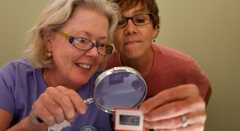
Open science — embrace it before it’s too late
A UNESCO report laments the lack of progress in making science more collaborative. Greater awareness could aid efforts to achieve the UN’s Sustainable Development Goals.
EditorialNature
My cell is better than yours
Scientists encounter pressure to validate their research work, leading to varied benchmarks and methods for performance assessment in the broad energy research field. Interlaboratory studies help highlight discrepancies in reported figures of merit, underscoring the need for standardized protocols, transparent reporting, and detailed analysis for fair comparisons. Here, we discuss this topic, focusing on battery materials.
- Nella M. Vargas-Barbosa
CommentNature Nanotechnology
A critical feminist study of mothers raising a child on the autism spectrum in Iran
- Ansar Khougar
- Parisa Ahadi
- Mahsa Ahadi

Neglecting sex and gender in research is a public-health risk
The data are clear: taking sex and gender into account in research and using that knowledge to change health care could benefit billions of people.
- Sue Haupt
- Cheryl Carcel
- Robyn Norton
CommentNature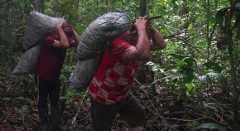
Forestry social science is failing the needs of the people who need it most
Rich nations’ fixation on forests as climate offsets has resulted in the needs of those who live in or make a living from these resources being ignored. A broader view and more collaboration between disciplines is required.
EditorialNature
Advancing ocean equity at the nexus of development, climate and conservation policy
Achieving inclusive and sustainable ocean economies, long-term climate resilience and effective biodiversity conservation requires urgent and strategic actions from local to global scales. We discuss fundamental changes that are needed to allow equitable policy across these three domains.
- Joachim Claudet
- Jessica Blythe
- Josheena Naggea
CommentNature Ecology & Evolution
Will AI accelerate or delay the race to net-zero emissions?
As artificial intelligence transforms the global economy, researchers need to explore scenarios to assess how it can help, rather than harm, the climate.
- Amy Luers
- Jonathan Koomey
- Eric Horvitz
CommentNature
We must protect the global plastics treaty from corporate interference
A United Nations-backed agreement to end plastic pollution is within reach — but only if scientists, civil society and businesses unite against powerful vested interests.
- Martin Wagner
World ViewNature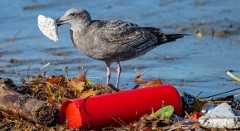
UN plastics treaty: don’t let lobbyists drown out researchers
Tackling plastic pollution needs scientists to be in the negotiating room at upcoming talks.
EditorialNature
Leveraging epidemic network models towards wildfire resilience
Wildfires have increased in frequency and intensity due to climate change and have had severe impacts on the built environment worldwide. Moving forward, models should take inspiration from epidemic network modeling to predict damage to individual buildings and understand the impact of different mitigations on the community vulnerability in a network setting.
- Hussam Mahmoud
CommentNature Computational Science
Quantifying forest degradation requires a long-term, landscape-scale approach
Forests are spatially and temporally dynamic, such that forest degradation is best quantified across whole landscapes and over the long term. The European Union’s forest degradation policy, which focuses on contemporary primary forest conversion to plantations, ignores other globally prevalent forestry practices that can flip forests into a degraded state.
- Matthew G. Betts
- Zhiqiang Yang
- Sean P. Healey
CommentNature Ecology & EvolutionChallenges and ways forward for sustainable weather and climate services in Africa
Sustainability of African weather and climate information can only be ensured by investing in improved scientific understanding, observational data, and model capability. These requirements must be underpinned by capacity development, knowledge management; and partnerships of co-production, communication and coordination.
- Benjamin Lamptey
- Salah SAHABI ABED
- Erik W. Kolstad
The Global Biodiversity Framework’s ecosystem restoration target requires more clarity and careful legal interpretation
- Justine Bell-James
- Rose Foster
- James A. Fitzsimons
CorrespondenceNature Ecology & Evolution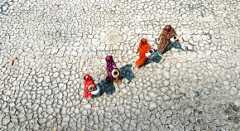
How to achieve safe water access for all: work with local communities
Four scientists reflect on how to foster a more sustainable relationship between water and society amid complex and wide-ranging challenges.
- Farhana Sultana
- Tara McAllister
- Michael D. Blackstock
CommentNature
Why the world cannot afford the rich
Equality is essential for sustainability. The science is clear — people in more-equal societies are more trusting and more likely to protect the environment than are those in unequal, consumer-driven ones.
- Richard G. Wilkinson
- Kate E. Pickett
CommentNature
Academic workplaces are still failing Black women; they must do better
Black women at universities are seldom heard. Institutions need to listen and take action.
- Nicola Rollock
World ViewNatureEndocrine disrupting chemicals are a threat to hormone health: a commentary on behalf of the ESE
The European Society of Endocrinology (ESE), representing 20,000 endocrinologists, is concerned about the effect of endocrine disrupting chemicals (EDCs) on endocrine health, particularly thyroid and gonadal function. The policy strategies of the ESE aim to minimize overall exposure of humans to EDCs and to stimulate funding for research at the level of the European Union.
- Martin Reincke
- Wiebke Arlt
- Jerome Bertherat
CommentNature Reviews Endocrinology
A spotlight on the tuberculosis epidemic in South Africa
Tuberculosis is the leading cause of death from a single infectious agent, with over 25% of these occurring in the African region. Multi-drug resistant strains which do not respond to first-line antibiotics continue to emerge, putting at risk numerous public health strategies which aim to reduce incidence and mortality. Here, we speak with Professor Valerie Mizrahi, world-leading researcher and former director of the Institute of Infectious Disease and Molecular Medicine at the University of Cape Town, regarding the tuberculosis burden in South Africa. We discuss the challenges faced by researchers, the lessons that need to be learnt and current innovations to better understand the overall response required to accelerate progress.
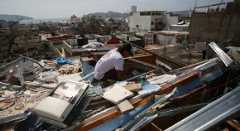
A 2023 hurricane caught Mexico off guard: we must work together to prepare better
Hurricane Otis yields lessons for researchers and policymakers on how to reduce risks in the face of inequality.
- Gian C. Delgado-Ramos
- Simone Lucatello
- Miguel Imaz-Lamadrid
CommentNature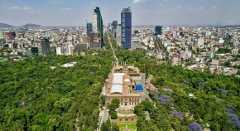
Cities matter to the world’s future — science must serve them better
From governance to climate impacts, the world’s urban environments face many difficulties. A new journal,Nature Cities, aims to bring together researchers who are rising to the challenge.
EditorialNature
Development of zeolite adsorbents for CO2 separation in achieving carbon neutrality
- Zeyu Tao
- Yuanmeng Tian
- Jin Shang

Reward whistleblowers who expose environmental crimes
- Masaki Iwasaki
CorrespondenceNature Human Behaviour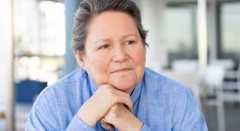
Cervical cancer kills 300,000 people a year — here’s how to speed up its elimination
Without rapid change, the World Health Organization’s goals for tackling cervical cancer by 2030 will be missed. Four experts share ways to move the needle.
- Lynette Denny
- Ishu Kataria
- Kathleen M. Schmeler
CommentNature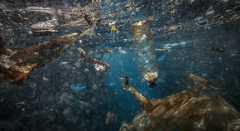
To curb plastic pollution, industry and academia must unite
Collaboration is key to making plastic use greener as soon as possible. Our experience yields tips on how to set up industry–academic partnerships.
- Collin P. Ward
- Christopher M. Reddy
- Steven T. Perri
CommentNature
Reorienting water and sanitation narratives towards sustainability transformations
Transformation narratives in water and sanitation emphasize public health and gender equality, yet miss a critical foundational perspective: planetary sustainability.
- Naomi Carrard
World ViewNature WaterPlace-based reflexivity for just energy social science
Where host communities are marginalized by industry practices, energy social science researchers must ensure that their research does not doubly exacerbate extractive practices. Place-based reflexivity provides a set of principles and concrete practices for researchers to avoid extractive relations with host communities and promote contextually relevant and democratic processes in pursuit of a just transition.
- Patrick Devine-Wright
- Stacia Ryder
CommentNature Energy
Beyond integrated care for older adults
Health systems have adopted models of integrated care to better align services around the needs of aging populations. The results are encouraging, but inconsistent. Although they are untested, recent approaches — such as the WHO’s ‘Integrated Care for Older People’ — that are explicitly person-centered suggest that more-radical reform may be possible.
- John R. Beard
CommentNature Aging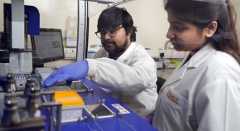
Boosting microbiome science worldwide could save millions of children’s lives
Studies of the microbes living on and in our bodies are conducted mainly in a few rich countries, squandering opportunities to improve the health of people globally.
- Hilary P. Browne
- Najeeha Talat Iqbal
- Samuel Kariuki
CommentNature
Global agendas aim for equity but instead push people behind
The Sustainable Development Goals promise to leave no one behind. Yet recent global actions have pushed disadvantaged groups further behind, writes Magda Robalo Correia e Silva.
- Magda Robalo Correia e Silva
World ViewNature Human Behaviour
Long-term care insurance and the future of healthy aging in China
China faces urgent challenges associated with population aging. In this Comment, we summarize China’s adoption of long-term care insurance and underscore its importance for social and economic wellbeing. We provide recommendations for a future of sustainable and healthy aging in China.
- Simiao Chen
- Linye Li
- Chen Wang
CommentNature Aging
The contribution of human conflict to the development of antimicrobial resistance
Pallett et al. discuss the impact of human conflict on development of antimicrobial resistance. They overview approaches to limit the spread of antimicrobial resistance, using the ongoing conflict in Ukraine as an example of the challenges and opportunities.
- Scott J. C. Pallett
- Sara E. Boyd
- Emma J. Hutley

Make global biodiversity information useful to national decision-makers
Participants in the Convention on Biological Diversity’s processes for implementing the Kunming-Montréal Global Biodiversity Framework need clarity on what makes biodiversity information useful to national decision-makers. Here we present seven preconditions of useful biodiversity information and describe how these can be supported through regional support centres and south–south cooperation.
- Falko T. Buschke
- Claudia Capitani
- Amrei von Hase
CommentNature Ecology & Evolution
Climate researchers need support to become scientist-communicators
Scientific institutions must create roles so that researchers can provide the deep public engagement necessary to respond effectively to the escalating impacts of climate change.
- Daniel Swain
World ViewNature
Approaching 1.5 °C: how will we know we’ve reached this crucial warming mark?
Assessing global mean temperature rise using the average warming over the previous one or two decades will delay formal recognition of when Earth breaches the Paris agreement’s 1.5 °C guard rail. Here is what’s needed to avoid the wait.
- Richard A. Betts
- Stephen E. Belcher
- Peter A. Stott
CommentNature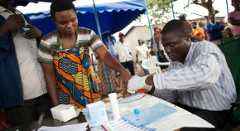
This is how the world finally ends the HIV/AIDS pandemic
Putting the specific needs of individuals and communities at the heart of HIV/AIDS care, by harnessing behavioural science, is key to building on the progress already been made.
- John Nkengasong
- Mike Reid
- Ingrid T. Katz
CommentNature
China and California are leading the way on climate cooperation. Others should follow
California governor Gavin Newsom’s delegation is building on existing research and policy initiatives with China, showing that effective climate action can happen below the national level.
- Fan Dai
World ViewNature
Chemistry is inaccessible: how to reduce barriers for disabled scientists
From classrooms to laboratories and conferences, working in chemistry presents huge challenges to disabled, chronically ill and neurodivergent people. Some simple fixes can help to shift the dial.
- Blaine G. Fiss
- Laena D’Alton
- Naumih M. Noah
CommentNature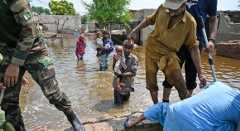
Climate loss-and-damage funding: how to get money to where it’s needed fast
Finance for coping with the harms of climate change must be disbursed swiftly and pragmatically. The world’s largest existing climate fund for supporting climate mitigation and adaptation provides lessons.
- Laura Kuhl
- Istiakh Ahmed
- Saleemul Huq
CommentNature
Climate loss-and-damage funding: a mechanism to make it work
Compensating for the devastating impacts of heatwaves, hurricanes and floods after they occur is too slow. With climate risks accelerating, the world must predict who needs funds and when.
- Richard H. Clarke
- Noah J. Wescombe
- Domenico Lombardi
CommentNature
Disaster early-warning systems can succeed — but collective action is needed
From floods to wildfires, and tsunamis to volcanic eruptions, early-warning systems can stop natural hazards becoming human disasters. But more joined-up thinking is urgently needed.
- Andrew C. Tupper
- Carina J. Fearnley
CommentNature
The world’s chemical-weapons stockpiles are gone — but a new challenge looms
Continued efforts to maintain the ban on chemical weapons depend on nations sharing information to further build trust and global safety.
- Peter J. Hotchkiss
World ViewNature
Protect the ‘right to science’ for people and the planet
Upholding human rights can ensure that environmental policy is driven by facts and evidence, not denialism, greed and profit.
- Volker Türk
World ViewNature
Mission Energy Access for a just and sustainable future for all
Access to clean energy is essential to sustainable human development. We thus have a responsibility and an opportunity to meet the global goal of ending energy poverty by 2030. We propose the creation of a new Mission Energy Access programme to support this aim.
- Ambuj D. Sagar
- Ajay Mathur
- Achim Steiner
CommentNature Energy
Equitable access to kidney transplants for Aboriginal and Torres Strait Islander people in Australia
First Nations peoples in Australia face systemic inequities in access to kidney transplantation. The National Indigenous Kidney Transplant Taskforce was established to address these. It has provided support to clinicians to implement and evaluate innovative practices and developed strategies to address biases in the structures and models of care that create barriers to wait-listing.
- Stephen P. McDonald
- Katie Cundale
- Jaquelyne T. Hughes
CommentNature Reviews Nephrology
‘I wrote my first piece of code at seven’: women share highs and lows in computer science for Ada Lovelace Day
Ada Lovelace was a visionary who first recognized the potential of computer programming. Almost two centuries on, six women in computer science and technology reflect on their experiences in the field.
- Janet Abbate
- Shobhana Narasimhan
- Verena Rieser
CommentNature
Nipah virus is deadly — but smart policy changes can help quell pandemic risk
Repeated outbreaks increase the risk of a Nipah strain emerging that is better at spreading.
- Thekkumkara Surendran Anish
World ViewNature
Priorities for progress towards Sustainable Development Goal 14 ‘Life below water’
This year marks the mid-point for the implementation of the United Nations 2030 Agenda for Sustainable Development and its 17 Sustainable Development Goals, including Sustainable Development Goal 14 (‘Life below water’). We asked a range of researchers working across marine science, conservation, policy and implementation to reflect on priorities for action on ocean health and biodiversity over the next seven years.
- Jane Lubchenco
- Emma F. Camp
- Harriet Harden-Davies
ViewpointNature Ecology & Evolution
Priorities for progress towards Sustainable Development Goal 15 ‘Life on land’
This year marks the mid-point for the implementation of the United Nations 2030 Agenda for Sustainable Development and its 17 Sustainable Development Goals, including Sustainable Development Goal 15 ‘Life on land’. We asked a range of researchers, working across biodiversity science, conservation, policy and implementation, to reflect on priorities for action on conserving terrestrial and freshwater ecosystems over the next seven years.
- H. David Cooper
- Musonda Mumba
- Jon Paul Rodríguez
ViewpointNature Ecology & Evolution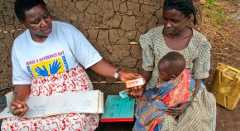
‘Benevolent’ patent extensions could raise billions for R&D in poorer countries
Research into vaccines, crop seeds and other innovations for low- or middle-income nations could be rewarded by offering longer patent coverage for profitable, non-essential inventions.
- Christopher B. Barrett
CommentNature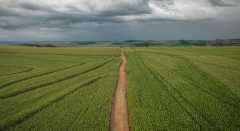
Genetic modification can improve crop yields — but stop overselling it
With a changing climate and a growing population, the world increasingly needs more-productive and resilient crops. But improving them requires a knowledge of what actually works in the field.
- Merritt Khaipho-Burch
- Mark Cooper
- Edward S. Buckler
CommentNature
Global stocktake and the SDG midterm review as opportunities for integration
Better integration of climate action and sustainable development can help enhance the ambition of the next nationally determined contributions, as well as implementation of the Sustainable Development Goals. Governments should use this year as an opportunity to emphasize the links between climate and sustainable development.
- Lukas Hermwille
- Adis Dzebo
- Wolfgang Obergassel
CommentNature Climate Change
Considerations for addressing bias in artificial intelligence for health equity
- Michael D. Abràmoff
- Michelle E. Tarver
- William H. Maisel

Transforming sanitation to combat the global water crisis
Improving sanitation technology and service is imperative for everyone, in every country.
- Doulaye Kone
World ViewNature WaterDigital determinants of health: opportunities and risks amidst health inequities
Digital transformation offers unprecedented opportunities for advancing healthcare, but also raises complex ethical and legal challenges. Emerging drivers of health disparity termed ‘digital determinants of health’ call for purposeful, equity-focused strategies to ensure that technological innovation benefits all without exacerbating disparities.
- Jack Gallifant
- Leo Anthony Celi
- Robin L. Pierce
CommentNature Reviews Nephrology
The sustainability paradox of processing plant proteins
The production of sustainable plant-based foods is not simply a question of which process has the lowest environmental impact in the food chain. We have to consider that different degrees of processing might result in different degrees of plant protein nutritional quality in the final food product.
- Patrícia Duque-Estrada
- Iben Lykke Petersen

Water for sustainable development
The alarmingly slow progress on water-related goals and targets jeopardizes the entire sustainable development agenda. In March 2023, the United Nations (UN) convened the first UN Water Conference in nearly 50 years to create momentum and accelerate progress. The outcome of the conference will feed into the High-level Political Forum on Sustainable Development (HLPF), which will be held in New York on July 10–19, 2023.Nature Water asked five experts about the challenges to meet the goals and where we need to go from here.
- Karin Sjöstrand
Q&ANature Water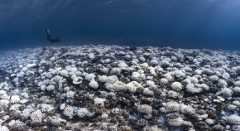
With the arrival of El Niño, prepare for stronger marine heatwaves
Record-high ocean temperatures, combined with a confluence of extreme climate and weather patterns, are pushing the world into uncharted waters. Researchers must help communities to plan how best to reduce the risks.
- Alistair J. Hobday
- Michael T. Burrows
- Thomas Wernberg
CommentNature
Mobilizing domestic support for international vaccine solidarity – recommendations for health crisis communication
- Dirk Leuffen
- Pascal Mohamed Mounchid
- Sebastian Koos
Current status of monkeypox vaccines
- Marion F. Gruber

The Sustainable Development Goals should be reset to prioritize poverty, health and climate
The UN SDGs will only improve human health if they are accompanied by systemic change that addresses global power imbalances.
- Ilona Kickbusch
- Ayoade Alakija
CommentNature MedicineUsing computational tools to monitor and improve access to quality food and water
Progress towards universal access to safe drinking water and nutritious food has been moving forward at a slower than desired rate. Computational tools can help accelerate progress towards these goals, but solutions need to be open source, and designed, developed and implemented in a participatory manner.
- Elisa Omodei
CommentNature Computational Science
Reducing disaster risk for the poor in tomorrow’s cities with computational science
Rapid urban expansion presents a major challenge to delivering the United Nations Sustainable Development Goals. Urban populations are forecast to increase by 2.2 billion by 2050, and business as usual will condemn many of these new citizens to lives dominated by disaster risk. This need not be the case. Computational science can help urban planners and decision-makers to turn this threat into a time-limited opportunity to reduce disaster risk for hundreds of millions of people.
- John McCloskey
- Mark Pelling
- Roberto Gentile
CommentNature Computational ScienceThe next seven years
As we approach the half-way point in the implementation of the Sustainable Development Goals, we discuss how computational science could help in reaching some of these goals by 2030.
EditorialNature Computational Science
What scientists need to do to accelerate progress on the SDGs
Drilling down into why the UN Sustainable Development Goals are so hard to achieve, and showing policymakers pathways to follow, will help the planet and save lives.
- Shirin Malekpour
- Cameron Allen
- Kaltham Al-Ghanim
CommentNature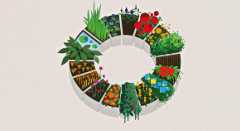
Do you really know the way the world is heading? Take this quiz on plans to save humanity
The United Nations has ambitious aims to end poverty and clean up the planet by 2030. See whether you know how the world is faring on the Sustainable Development Goals.
- Ehsan Masood
- Richard Van Noorden
News FeatureNature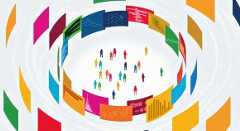
The world’s goals to save humanity are hugely ambitious — but they are still the best option
Not one of the United Nations Sustainable Development Goals looks set to be achieved by 2030. But deadlines can help focus the mind, and scientists should double down on their work to support the goals.
EditorialNature
Bucking the system: the extraordinary story of how the SDGs came to be
Behind the UN Sustainable Development Goals is a stirring tale of people overcoming huge odds against hostile institutions.
- Ehsan Masood
Book ReviewNature
Returning to core principles to advance the 2030 Agenda
Principles underpinning the 2030 Agenda — indivisibility, integration and universality — can safeguard against inaction or unsustainable practices but have not yet come into effect. We propose measures to strengthen alignment with them as the world gears up to accelerate implementation at the 2023 SDG Summit.
- Nina Weitz
- Henrik Carlsen
- Åsa Persson
CommentNature Sustainability
Gender equality: the route to a better world
Health outcomes, ending poverty and greening the environment are boosted when power is shared between the genders.
EditorialNature
A new model for public health in Africa can become a reality
As Africa emerges from the COVID pandemic, combating infectious diseases must be a priority — along with treating non-communicable and mental health conditions.
- Jean Kaseya
World ViewNature
Hypocrisy is threatening the future of the world’s oceans
A few powerful nations are undermining progress towards global ocean sustainability. Scientists can help hold them to account.
EditorialNatureHow do we solve a problem like tuberculosis?
Investment in a new tuberculosis vaccine is a landmark step forward, but continued efforts to advance treatments, diagnostics and biosocial issues are needed to meet targets to end the epidemic by 2035.
EditorialNature Microbiology
The science is clear: sustainable development and climate action are inseparable
Sustainability cannot be achieved without climate action, and vice versa. What’s needed is a fight on both fronts.
EditorialNatureEnhancing sustainable development through plant genetics
In April 2023, leading experts met with members of US Congress to discuss strategies to ensure global food security. Following on from this, Pamela Ronald emphasizes the role that plant genetics has in achieving these goals.
- Pamela C. Ronald
CommentNature Reviews Genetics
Tackle ever-growing consumption to safeguard sustainability gains
The world is consuming more efficiently, but still using more stuff. More-concerted efforts to change both consumer and producer behaviour are needed.
EditorialNature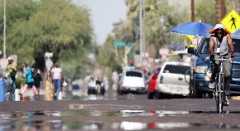
Want a sustainable future? Then look to the world’s cities
In a rapidly urbanizing world, what happens in cities matters — and sustainability success stories show what can be achieved when researchers and policymakers work together.
EditorialNature
Reducing inequality benefits everyone — so why isn’t it happening?
Those urging world leaders to take action on inequality should study why earlier efforts did not translate to changes in policy.
EditorialNature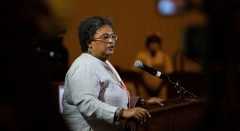
Beyond greenwashing: how to make business and finance genuinely sustainable
Researchers have a big role in unlocking funds for sustainability and ensuring that companies’ pledges are credible.
EditorialNature
GDP at 70: why genuinely sustainable development means settling a debate at the heart of economics
Researchers advocating reform of the world’s main measure of growth have an opportunity to participate in the process that sets the rules.
EditorialNature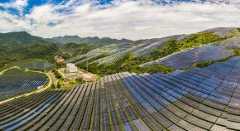
Clean energy can fuel the future — and make the world healthier
Research challenges the myth that clean energy acts as a brake on global economic development.
EditorialNature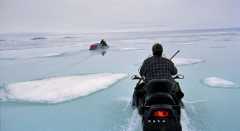
Indigenous youth must be at the forefront of climate diplomacy
Holistic approaches to water and land management practised by Indigenous communities worldwide hold the key to a more sustainable future, say co-organizers of the Global Indigenous Youth Summit on Climate Change.
- Temitope Olawunmi Sogbanmu
- Heather Sauyaq Jean Gordon
- Adeyemi Oladapo Aremu
CommentNature
Water crisis: how local technologies can help solve a global problem
Climate change is making water stress worse for billions worldwide. Scaling up both new and traditional solutions must be a priority.
EditorialNature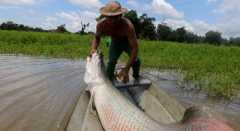
Millions of jobs in food production are disappearing — a change in mindset would help to keep them
Halting the loss of jobs and knowledge from small-scale producers requires investing in rural sustainability, addressing poverty and inequity and ensuring the economic gains stay local. The benefits would be shared globally.
- Eduardo S. Brondizio
- Stacey A. Giroux
- Beate Henschel
CommentNatureMicroorganisms, climate change, and the Sustainable Development Goals: progress and challenges
The forthcoming UN summit marks the halfway point to 2030 and presents an important milestone in global efforts to address various challenges, including those related to climate change and environmental preservation. The UN SDGs include several related to microorganisms and climate change. Microbiology research is key to understanding and mitigating climate change, and in maintaining the health of terrestrial and aquatic ecosystems (SDGs 13, 14 and 15).
- Janet K. Jansson
CommentNature Reviews Microbiology
The path to successful hepatitis C elimination in Spain
Strong multidisciplinary support and political commitment have helped Spain become one of the countries most likely to eliminate hepatitis C. In this Comment, we set out six key elements of the Spanish elimination effort that can serve as a model elsewhere and the remaining barriers to overcome.
- Javier Crespo
- Joaquín Cabezas
- Jeffrey V. Lazarus

Accelerated reduction in global cardiovascular disease is essential to achieve the Sustainable Development Goals
Cardiovascular health is essential to achieving the United Nations Sustainable Development Goals (SDGs), particularly SDG3.4. Barriers include inequalities and a lack of political will and prioritization. A comprehensive approach is needed to reduce the global burden of cardiovascular disease and to achieve SDG3.4. The World Heart Federation addresses the determinants of cardiovascular disease and mobilizes the global community through roadmaps, roundtables and advocacy.
- Daniel J. Piñeiro
- Elisa Codato
- Jagat Narula
CommentNature Reviews Cardiology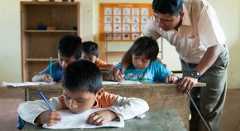
How to educate the world: prioritize funding and data
Data gaps are hindering progress on the Sustainable Development Goal for education and lifelong learning. Modest funding will help to fill them.
EditorialNatureInfectious diseases and the Sustainable Development Goals: progress, challenges and future directions
Infectious diseases markedly influence progress towards the SDGs. Pandemics and global inequity have hindered progress towards the health targets, highlighting humanity’s interconnectedness and shared vulnerability to new infectious agents. Enhanced global collaboration and partnerships in training, surveillance, research and innovation are essential to reach the health SDGs by 2030.
- Quarraisha Abdool Karim
- Salim S. Abdool Karim
CommentNature Reviews Microbiology
Principles for the prevention and control of non-communicable disease
Non-communicable diseases in low- and middle-income countries can be tackled with integrated health systems interventions that consider multimorbidity, supported by patient involvement and new technologies.
- Sailesh Mohan
- Kamlesh Khunti
- Dorairaj Prabhakaran
CommentNature Medicine
The poorest and most vulnerable communities should be the first to be vaccinated
Eighteen million children have received no routine vaccines — prioritizing them will save lives and build health infrastructure.
- Seth Berkley
World ViewNature Medicine
Why Wellcome is tackling the health impacts of climate change
Climate change must be embedded in funding strategies and medical curricula, with research being best conducted in the countries most affected.
- Alan Dangour
World ViewNature Medicine
Building healthy populations one community at a time
Tailored community engagement led or co-led by the community can build trust with underserved communities to deliver health equity.
- Folakemi T. Odedina
- Rafaela Alves Pacheco
- Marcia C. Castro
CommentNature Medicine
The best medicine for improving global health? Reduce inequality
The COVID pandemic knocked back progress towards improving public health. Without addressing the underlying social and economic causes of ill health, it could completely stall.
EditorialNature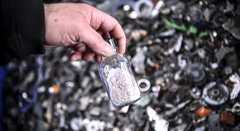
How to build a circular economy for rare-earth elements
Rare-earth elements that are crucial for clean-energy technologies are jealously fought over. Policies and programmes to encourage recycling and recovery could reduce tensions.
- Yong Geng
- Joseph Sarkis
- Raimund Bleischwitz
CommentNaturePublic health leaders must confront the power imbalances that harm global health
- David McCoy
- Rajat Khosla
CorrespondenceNature Medicine
Engaging the tropical majority to make ocean governance and science more equitable and effective
How can ocean governance and science be made more equitable and effective? The majority of the world’s ocean-dependent people live in low to middle-income countries in the tropics (i.e., the ‘tropical majority’). Yet the ocean governance agenda is set largely on the basis of scientific knowledge, funding, and institutions from high-income nations in temperate zones. These externally driven approaches undermine the equity and effectiveness of current solutions and hinder leadership by the tropical majority, who are well positioned to activate evidence-based and context-specific solutions to ocean-sustainability challenges. Here, we draw together diverse perspectives from the tropics to propose four actions for transformational change that are grounded in perspectives, experiences, and knowledge from the tropics: 1. Center equity in ocean governance, 2. Reconnect people and the ocean, 3. Redefine ocean literacy, and 4. Decolonize ocean research. These actions are critical to ensuring a leading role for the tropical majority in maintaining thriving ocean societies and ecosystems.
- Ana K. Spalding
- Kirsten Grorud-Colvert
- Rebecca Vega Thurber

The G20 should forge a pact to support nations’ shifts to a low-carbon future
Fossil fuels should be used sparingly, in the areas where they contribute most to human welfare.
- Navroz K. Dubash
World ViewNature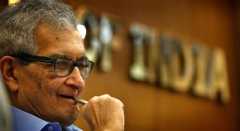
Hunger and famine are not accidents — they are created by the actions of people
Hundreds of millions of people are going hungry as conflicts affect food supplies. There is also growing evidence that food producers are exploiting the situation to increase their profits.
EditorialNature
A decades-long decline in extreme poverty has gone into reverse — here’s how to fix things
Factors ranging from COVID-19 to Russia’s war in Ukraine are increasing extreme poverty. Finding effective solutions starts with agreeing on how to measure what poverty means.
EditorialNature
A mission-driven approach for converting research into climate action
With each IPCC report, the science basis around climate change increases extensively in terms of scope, depth, and complexity. In converting this knowledge into societal climate action, research organisations face the challenge of reforming the ways they structure themselves, generate solutions, and communicate scientific findings to stakeholders. Here we present a mission-driven approach to guide those efforts.
- Daniel Adshead
- Haluk Akay
- Francesco Fuso Nerini
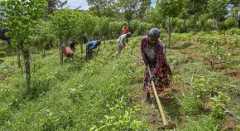
Current conservation policies risk accelerating biodiversity loss
Three approaches that aim to cut the harms of agriculture — land sharing, rewilding and organic farming — risk driving up food imports and causing environmental damage overseas. An alternative approach is both effective and cheaper.
- Ian Bateman
- Andrew Balmford
CommentNature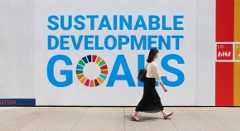
The world’s plan to make humanity sustainable is failing. Science can do more to save it
There is no planet B, and the UN’s Sustainable Development Goals are heading for the rocks. Researchers around the world must do their bit to change that.
EditorialNatureThe human microbiome, global health and the Sustainable Development Goals: opportunities and challenges
The human microbiome has a crucial role in global health, with implications for achieving the Sustainable Development Goals (SDGs). Understanding and harnessing the potential of the microbiome, while recognizing its link to the global ecosystem, can drive innovative strategies for improved public health, and promote sustainable development.
- Paul W. O’Toole
- Max Paoli
CommentNature Reviews Microbiology
Nanotechnology for coral reef conservation, restoration and rehabilitation
The mounting environmental pressure on coral reefs calls for a rapid push towards innovative actions. Nanotechnology could help understand and protect present-day reefs to ensure their survival.
- Liza Roger
- Nastassja Lewinski
- Daniel Wangpraseurt
CommentNature Nanotechnology
Sexual and reproductive health and rights must be enshrined in universal healthcare
These interventions for women and girls improve population health and boost the economy.
- Natalia Kanem
World ViewNature Medicine
Nano-enabled strategies to enhance biological nitrogen fixation
Increasing the capacity of biological nitrogen fixation (BNF) is an effective strategy to enhance food security while simultaneously reducing the carbon and nitrogen footprint of agriculture. Nanotechnology offers several pathways to enhance BNF successfully.
- Mingshu Li
- Li Gao
- Peng Zhang
CommentNature Nanotechnology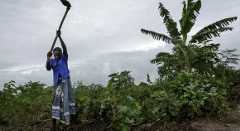
Indigenous knowledge is key to sustainable food systems
Agricultural sciences have for too long ignored traditional and local knowledge about crop plants and how best to grow them. That must change if the world is to ensure future food security.
- Alexandre Antonelli
CommentNature
Degrowth can work — here’s how science can help
Wealthy countries can create prosperity while using less materials and energy if they abandon economic growth as an objective.
- Jason Hickel
- Giorgos Kallis
- Diana Ürge-Vorsatz
CommentNature
The path to equitable HIV prevention
HIV remains a major global health issue, with the burden of the epidemic disproportionately falling on low- and middle-income countries. Progress in HIV prevention, most notably pre-exposure prophylaxis (PrEP), has been slow to reach those most in need.
- John Alechenu Idoko
- Beatriz Grinsztejn
- Nittaya Phanuphak

At COP 27, support poorest for climate loss and damage
Wealthy countries must take responsibility for the people most injured by climate change.
- Madeleine Diouf Sarr
World ViewNature
Human and planetary health on fire
Wildfires are increasing globally, with several recent catastrophic wildfires linked to climate change. Here, we consider the negative impact of the toxic contaminants arising from these fires on the immune system, with a focus on how wildfire pollution can exacerbate inflammatory diseases.
- Cezmi A. Akdis
- Kari C. Nadeau
CommentNature Reviews ImmunologyRelevance of international partnerships in the implementation of the UN Sustainable Development Goals
Sustainable Development Goal 17 focuses on partnerships that can enable the achievement of other SDGs. In this comment the authors examine the obstacles to the success of SDG 17 and suggest measures to overcome these.
- Walter Leal Filho
- Tony Wall
- Julianna Ramirez

Ocean sustainability for all requires deeper behavioural research
Behavioural science can enhance ocean sustainability by providing insights into illegal fishing. Current enforcement criminalizes small-scale fishers and fails to address root causes, letting large-scale illegal fishing off the hook. Efforts to address illegal fishing would benefit from more holistic behavioural research.
- Dyhia Belhabib
- Philippe Le Billon
- Nathan J. Bennett
CommentNature Human BehaviourSustainable social development: tackling poverty to achieve kidney health equity
Chronic kidney disease (CKD) is a rapidly growing public health problem, especially in disadvantaged populations. Major political interventions are required to mitigate the social and socioeconomic inequities that contribute to the development and progression of CKD and its disproportionate impact on low and middle-income countries.
- M. R. Moosa
- K. C. Norris
CommentNature Reviews Nephrology